|
Today is the celebration of the Feast of St. Januarius, lovingly known in Italy as St. Gennaro. Januarius was an Italian bishop and martyr who died around the year 305. Not much is known about him other than what has been passed down in tradition, which tells us that the bishop of Benevento died under the Christian persecution of Diocletian along with six companions. After being thrown to wild beasts, who did not attack them, the Christians were beheaded. The accounts and lives of the martyrs always serve to build up the Church. As Tertullian’s saying famously states, "the blood of the martyrs is the seed of the Church." We recall the accounts of martyrs throughout the ages such as Felicity and Perpetua, Joan of Arc, Thomas More, Maximilian Kolbe, Blessed Miguel Pro, Blessed Richard Henkes, S.A.C., and most of the Apostles themselves. How diverse and rich is the witness of the martyrs and saints! In each generation, the martyrs demonstrate heroic faith in a culture of opposition that culminated in the sacrifice of their very lives. In the case of St. Januarius, his witness continues in a special way today as a result of his relics. Not only is his witness of martyrdom powerful, so is the miracle associated with his blood. After Janurius’ beheading, a woman named Eusebia collected the bishop’s blood in a vial. This was brought to Naples and has been venerated for centuries. Most extraordinarily, for the past recorded 400 years starting in 1389, the dried vial of Januarius’ blood liquefies typically on three dates a year: “in the spring during celebrations of the feast of the transfer of the saint’s relics to Naples; Sept. 19, his feast day; and Dec. 16, the local feast commemorating the averting of a threatened eruption of Mount Vesuvius through the intervention of the saint.” Most recently, his blood half-liquefied on a date outside of the normal dates with a visit from Pope Francis in March of 2015. In his typical humble fashion, Pope Francis responded to the applause from the crowd saying, “The bishop said the blood is half liquefied. It means the saint loves us halfway; we must all convert a bit more, so that he would love us more.” Through his words, Pope Francis reminds us that the purpose of miracles is to draw us closer to Christ and to increase our faith. Jesus performed miracles not for spectacle, but for healing and conversion. The miracles of holy men and women continue to this day and serve the same purpose: to inspire profound faith in the ongoing work of God that causes us to strengthen our love of Him in word, action, and service. May they inspire our own faith and lead us closer to the One who modelled perfect martyrdom in charity—Jesus Christ—whose martyrdom we commemorate at every celebration of the Eucharist. Nourished by his Body and Blood, may we emerge from our parishes strengthened to answer persecution with love, hatred with forgiveness, apathy with zeal, ignorance with truth, and selfishness with compassion. In doing so, we will be everyday martyrs—literally, witnesses—proclaiming the Gospel with our lives. St. Januarius, pray for us.
0 Comments
“I looked into my deepest wound and was dazzled by your glory.” – St. Augustine of Hippo (attributed) My favorite Gospel passage has always been Mark 3:2-5: “And they watched him, to see whether he would heal him on the sabbath, so that they might accuse him. And he said to the man who had the withered hand, ‘Come here.’ And he said to them, ‘Is it lawful on the sabbath to do good or to do harm, to save life or to kill?’ But they were silent. And he looked around at them with anger, grieved at their hardness of heart, and said to the man, ‘Stretch out your hand.’ He stretched it out, and his hand was restored.” Why did Jesus ask this man to stretch out his hand? Didn’t He know there were people around who would be able to see what was probably this man’s greatest insecurity? Didn’t He understand that this man had been judged and ridiculed enough throughout his life? That his deformed hand—and himself—was looked upon with disgust? Why would Jesus ask him to stretch it out, being all the more visible to the crowd around him? Jesus could have easily healed his hand while it was still hidden. Why cause more pain? Of course, Jesus was aware of the people around him who could see this man’s deformity. In this moment, however, the man with the withered hand probably felt like the only person in the room. What was happening between him and Jesus was the creation of an eternal bond, a divine exchange. This man wanted to be healed; who wouldn’t want the Divine Healer to rid us of our imperfections? But Christ asks the man to stretch out his hand so that he could participate in his healing. So that, in essence, he would tell Christ, “Here is my wound. I want to be healed.” So that it would be the work of Creator and created, an exchange of love, a sign of trust, a unification of suffering. Our redemption as Christians is comprised of many things, but the two I see most often are the participation with Christ in our healing by uniting our suffering to His on the Cross and the offering of our suffering for the benefit of another. In each way, we are actively engaging with the Divine Healer to find His strength through our pain and confidence in the midst of our flaws. When we invite God into our wounds, he transforms them. As St. Augustine said in the quote above, we can be dazzled by the glory we find there. As Catholics, we often hear in regards to suffering the phrase “offer it up.” I think this can sometimes belittle what is truly going on. When we sit before God and say “here are my wounds, here is my pain, hurt, and suffering—heal me,” something supernaturally transformative occurs. We are unifying our wounds to Christ’s wounds on the Cross and, wound for wound, are transforming our suffering into an act that is redemptive. When we participate with Christ in our own healing through suffering, Christ takes that free act of love and can use it to not only heal you, but to transform you to be more like Him and help others to also be transformed. How can actively participating in your healing transform others and lessen their suffering? Well, I think it is mostly a mystery. But allow me to unpack what I think occurs. Each amount of suffering offered up is like a quarter being placed in a jukebox. Once inserted, it enables the rest of the room to hear the music. The whole room is transformed. So too by offering your suffering to God, your fellow man can receive the sweetness of your pain and be converted by the beauty of your love freely given. Each contribution to this divine economy enhances the unity of the Mystical Body of Christ. The heavens move, the saints and the angels engage, and the supernatural world comes in contact with the natural, bridging the gap between heaven and earth just a little more. By inviting God into our hurt, giving our suffering to Him for the sake of others, and by showing it boldly like the man with the withered hand, we can participate with our Creator in becoming whole. This is the beauty of our faith—that our suffering is not our end, but rather the avenue by which we grow closer to Christ. "Rather than seeing summer as the “down time” at a church, commit to approach the coming months with the intention of fostering experiences of active service, quiet prayer and contemplation, and stimulating intellectual work or professional training."
Having worked at a handful of churches, I have observed that the summer is the slowest time of year for parish life. Parishioner’s schedules are all over the place, especially if there are children or teenagers involved, with vacations, camps, etc. During the summer, parish programs tend to slow down (However, some parishes will run a Vacation Bible School, or similar camp-like program). But summer doesn’t have to be a long spiritual nap. In fact, the summer can be a very important time and opportunity for a church, especially for church staff. How you approach the summer can greatly shape the year ahead. Besides the celebration of the Mass, the summer provides a number of unique opportunities for spiritual growth in areas that aren’t always possible throughout the rest of the year. Here are a few opportunities for spiritual growth you might consider for your parish. Parish Mission Trips Many parishes host mission trips—whether local, national, or international. Consider prioritizing mission trips and extending the opportunities to different ages and areas. Some of my best summer memories are the trips I went on to rural Appalachia in high school. These trips instilled in me a call and love for ongoing service in my faith. Plan opportunities not only for parish staff, but also for families to serve together. Make it memorable and accessible. Let missions be an opportunity to get beyond the model of Christian ministry as something that only happens at your church. And remember to report back on the trip through photos, stories, or results to your parish. People love hearing about the activity in their parish community. It creates a sense of energy and momentum that can get carried into fall activities, especially in a youth ministry context. A service trip provides something concrete participants can point to and share with friends, family, or parishioners. I’ve also found that the more “on the fence” parishioners that are hesitant to get involved often take that first step after seeing the fruit of service. Most importantly, participants inevitably leave with a transformed, deeper experience of their faith and a lived experience of Jesus in his ministry to the broken places in need of healing. To find some long-term and short-term mission and service opportunities, click here. Retreats Work at the church never stops, but it does slow down. When is the last time your staff or ministry team spent time away, even just for a day or afternoon, from the office environment together and prayed? There are gorgeous retreat centers and shrines in every state that too often only get visited in the dead of winter. The Christian writer and philosopher Dallas Willard once said, “The greatest threat to devotion to Christ is service for Christ.” He was talking about our tendency to view prayer and contemplation as less fruitful compared to active ministry. Prayer is essential not only to any parish ministry, but to the Christian life overall. Invite your team to pray regularly or be renewed by attending a retreat. Priests are also required by Canon Law to take a retreat. Make sure your parish priest is getting the time off he needs to pray and reflect. If you or your staff is on retreat, pray for your parish priest throughout that time. Staff Development With all the conferences, classes, symposiums, etc., that happen on college campuses or churches throughout the country, summer is a great time to invest in the development of staff and volunteers. Look for opportunities to enhance your team’s intellectual and professional skills. Be flexible and open to new ideas where you and your staff can connect with other professionals or get inspired. If your parish has room in the budget, propose a conference you are passionate about or that will help your work. If you’re a liturgy or music director, take your ministers or musicians out to see a concert of sacred music or take a tour of a cathedral or museum. Rather than seeing summer as the “down time” at a church, commit to approach the coming months with the intention of fostering experiences of active service, quiet prayer and contemplation, and stimulating intellectual work or professional training. You might notice that rather than mustering the energy to get “back in gear” as summer draws to an end, you will feel renewed, enriched, and equipped for the “busy time” ahead. Moreover, you may draw closer to other others working at the parish and be more integrated as a staff, youth group, or ministry team. This can be a leaven to your ministry and parish for the rest of the year. Finally, make sure you have some fun while you’re at it; it is summer after all. *This post was originally published on the Ad Infinitum Blog on June 2, 2016. Two forces have particularly influenced my life. The first is my Catholic faith – given by my parents and nurtured by others as I grew. The second is my adulthood experience with obsessive-compulsive disorder (OCD). In wrestling with both of these forces (at times feeling like Jacob, who wrestled with God), I accidentally discovered a saint whose experiences reflected my own. Saint Dymphna lived in Ireland during the seventh century, after the time of Saint Patrick, Saint Brigid, and Saint Columba. Christianity was practiced by many – including Dymphna’s mother, who had her daughter secretly baptized. Dymphna’s father was a pagan king named Damon. Dymphna’s mother died when Dymphna was just 15 – throwing her father into a terrible grief. Damon’s counselors advised him to remarry, and though they searched for another wife, they found none. They then advised Damon to marry his daughter, who reflected her mother’s great beauty. Initially repelled, Damon eventually agreed and proposed to his daughter. Under the guidance of her confessor priest, Saint Gerebran, Dymphna rejected her father’s proposal, and fled Ireland for Belgium. Tradition states that Dymphna then built a hospice in Geel for the sick and the poor, where she remained for some time. Soon, Damon and his men traced Dymphna’s journey, and ascertained her whereabouts due to Dymphna’s use of foreign currency. Confronted by the mad king, Saint Gerebran rebuked his behavior, and Damon had his men kill the priest. Still hoping to win his daughter, Damon then pleaded kindly, offering wealth, prestige, and honor. Dymphna, steadfast in her vow of chastity, rejected the offer – and by her own father’s sword was beheaded. Soon after Dymphna’s martyrdom, several “lunatics” spent the night in the countryside where Dymphna died, and woke up in the morning healed. This miraculous place became known throughout Europe: a church was eventually built in the 1300s, with a sanctuary expansion built to accommodate pilgrims seeking mental relief. Townspeople themselves even began taking them into their homes, a tradition that continues to this day. Saint Dymphna entered my own life in a chance way seven years ago, near the onset of my OCD symptoms – which involved uncontrollable obsessions and time-consuming “checking” behaviors. Around this time, I discovered in my bedroom a prayer coin invoking Saint Dymphna. I do not recall where this coin came from – and I certainly had never heard of Dymphna before. But the prayer on the back captured me: “Oh St. Dymphna, Patroness of nervous and mental illnesses, grant that, through prayer, I may be pure in mind and soul.” Fascinated by her story and her Irish identity, I began to read, learn, and ask in prayer for her help. This relationship deepened and developed into my own pilgrimage to St. Dymphna’s church in Geel – which was closed when I reached Belgium! Nevertheless, she has continued to inspire my journey from OCD sufferer to OCD advocate, and I am more convinced than ever that she is a great intercessor and resource in our current Age of Anxiety. Below are some brief meditations on Dymphna’s continued influence on my life: 1. Dymphna kept faith even in grief. We all know how grief challenges our faith. Not only did Dymphna lose her mother, but she also had to tread the impossible tightrope of consoling her father while recognizing that his sickness was warping him. This must have torn at Dymphna’s heart. Yet even amidst suffering, she did not stop hoping in God’s providence. In my own life, losing my brother six years ago in an accident severely challenged my faith in God. During this time, I believe Saint Dymphna’s help guided me back to a place of trust and hope. 2. Dymphna chose the path of unknowing and vulnerability. By fleeing to Geel, Dymphna took a major-league risk and rejected the familiarity of her native land. Yes, she was momentarily safe from the king – but incredibly vulnerable as a foreigner and refugee. In many ways, staying home and appeasing her father would have been the “safe” choice. OCD constantly tempts me with gaining “safety” at the cost of doing ridiculous compulsions. While it’s terrifying to reject what OCD wants me to do (“Think hard enough and you’ll have peace!”), I have to respond by saying, “I’m willing to be anxious and unknowing, so I can live a real life.” That Dymphna, Patroness of mental illness, was beheaded, indicates to me that I must abandon relying on my brain, and embrace God and that which I cannot see or “figure out.” 3. Dymphna perfected her own authority and freedom to choose. In standing up to Damon, Dymphna inspires all of us who face temptation and all who face oppression from those who misuse their power. Not only did Dymphna preserve her vows of chastity, but she also avoided another, potentially graver misstep – the acceptance of a false crown, that is, her mother’s rightful crown. The choice to be independent is terrifying. The story of Dymphna, however, shows true independence is possible, through faith in God who desires our freedom from sin and from oppression. With God’s help we may learn to abandon the perceived “safety” of acquiescing to the soul-stealing machinations of tyrants (even the tyrants in your own mind), at which time the opportunity for freedom, originality, generosity, charity, and creativity arises. Questions for Reflection: What false crowns have you been offered in your life? What powerful proposals have been extended at the cost of your authority and freedom to choose? The next forty days of Lent are Mother Church’s annual call to intense prayer, fasting, and almsgiving oriented towards embracing God as the center of one’s life and repenting of all which distracts us from Him. With the current crisis for the Church in the United States, it seems that the Church could really use a good spiritual renewal, cleansing, and renunciation of sin often focused on during the season of Lent. As parts of the Body of Christ[1], we are all too aware how an affliction experienced (or caused) by one part affects us all. Recall the words of St. Paul, “Rejoice with those who rejoice, weep with those who weep... Do not be conquered by evil but conquer evil with good.”[2] The Church is suffering but, just as she always has, she will ultimately be restored for the glory of God. As laity, you and I are key to addressing this scourge, along with the Church’s holy clergy and religious, and to affirming God’s presence in our lives not just in the Lenten season, but every day.
Though a time of repentance, Lent is not a time of despair or hopeless suffering; this season reminds us that God, although saddened by our repeated failings, never closes Himself off from offering mercy and love to the broken, the sinner, and the lost. Lent is not a diet, nor a fad of living without something trivial, nor even a temporary spiritual renewal; it must take root—free from the sin which prevents this—and be nourished over the coming weeks to strengthen us throughout the whole year. Above all, Lent prepares us for the celebration of Easter. Christ has died, Christ is risen, Christ will come again; the Church suffers, the Church is renewed, the Church shall be restored! The abuse scandal today may cause people to feel abandoned, angry, confused, and sad. “How can this be happening?” is certainly a question in our hearts and homes these days. It is important to remember that Jesus Christ, the same “yesterday, today, and forever,”[3] reigns over the Church. He is omnipotent, divinely good, and eternal; Let us take courage in the truth that our faith is ultimately in Jesus Christ. Because our Lord remains faithful to us[4] and ever close to His bride, the Church, He gives us the strength to recommit ourselves to renouncing the evil in our sight that threatens to drive us away from God and His Church. Lent is the perfect opportunity to facilitate spiritual renewal, not only for ourselves but also for the greater Church. Following the example of Jesus’ time in the desert before commencing His public ministry, the faithful are invited to reflect on the state of the Church, pray for strength, courage, justice, and healing, and even seek accountability in the governance of the Church. Personal penance can be made for our own failings, but reparation must also be made to address this scandal and to unify God’s people to prayerful and peaceful action in seeking God’s healing grace to move forward. Over the next 40 days, let us care for the Church by promoting healing among ourselves, supporting the afflicted and needy, addressing sin and divisions, and always proclaiming Christ to each other and the world. For more resources to accompany you throughout the Lenten season, please click here. [1] cf. Lumen Gentium, 33. [2] Romans 12:15, 21. [3] Hebrews 13:8. [4] cf. 2 Timothy 2:13. Editor's Note: This article originally appeared in the September 6th, 2018 edition of the Catholic Apostolate Center's eNewsletter.
It is no secret that the Church is facing turbulent times. The Catholic Apostolate Center would like to express deep and heartfelt sorrow to all victims of clergy sexual abuse. Our Director, Fr. Frank, will be offering a Novena of Masses for Victims of Sexual Abuse from September 7 to September 15 (Memorial of Our Lady of Sorrows). We invite all to join us in prayer. It is important to care for those who are suffering and to remember self-care. If you or someone you know needs information, support, or resources regarding stress and trauma, we invite you to our Self-Care for Healthy Ministry Resource Page. There, you can find resources from SLIconnect, the education ministry of Saint Luke Institute. You will be directed to the following resources:
Please use the virtue of prudence to determine if a licensed and/or medical professional should be involved when dealing with stress and trauma. In these difficult times, the Church will move forward with an increased role of the laity, which will require greater co-responsibility and collaboration among the faithful with clergy. Our Collaboration in Ministry Resources unpack what healthy and fruitful collaboration looks like. On this resource page, you will find many talks, blogs, articles, websites, podcasts, and more, all aimed at maximizing the resources in the Church in a healthy and productive way for the salvation of souls. You can listen to our new podcast on co-responsibility by clicking here, and you can view our Collaboration in Ministry Resources by clicking here. Finally and most importantly, we must remember that our faith life is in Jesus Christ and through his Church. To properly orient ourselves, we invite you to study the message of Pope Francis in his third Apostolic Exhortation, Gaudete et Exsultate (Rejoice and be Glad). Pope Francis seeks “to repropose the call to holiness in a practical way for our own time, with all its risks, challenges and opportunities (GE 2).” We encourage you to visit our Gaudete et Exsultate Resource Page to read this timely exhortation, and to find media and other resources to help you distill the Holy Father’s call to holiness. A Facebook Live event with Fr. Frank is particularly helpful and can be viewed by clicking the image, or here. Visit our Gaudete et Exsultate Resource Page by clicking here. Yours in the Charity of Christ, The Catholic Apostolate Center Team What does it mean to be a faithful Catholic? We are often quick to answer this question with things like Mass attendance, frequent confession, respect for all life, serving the poor and vulnerable, and advocating for those without their own voices. In other words, we might answer this question with action verbs, or phrases that suggest doing. However, identifying as a Catholic requires just as much being as doing; as Catholics, we are called to be in right relationship with God, others, and ourselves. Being in right relationship means that in all parts of our lives, there is an order to what we do, love, desire, value, and move towards; this order is one that is rooted in God, sustained by constant conversion to him, and ultimately fosters lasting communion with him in this life and the next. There are many things in our lives that prevent us from being according to this pattern and order. For many of us, things like tragedy, addiction, animosity, violence, mental illness, polarization, and trauma have weakened our trust in God and the goodness of others. Our hearts can be exhausted by divisions within our own families, numerous transitions in our careers or geographical locations, failed plans and dreams, and the restlessness that comes with the seasons of waiting in our lives. Sometimes, we find that our hearts have become worn down and afraid in all that life has asked us to carry. Like illness or a disease, leaving these wounds of the human condition untreated poses a hazard to our being. Trying to live out our faith without seeking some form of psychological and emotional healing for these wounds causes our views of ourselves, God, and others to become distorted, preventing order and harmony from forming in our lives. Untreated emotional and psychological injuries and pain show themselves in the ways in which we seek to serve God and others. We sometimes put up “walls” around our hearts and push others away because we’ve been so damaged by close relationships. We might become obsessively self-interested because we see our value and dignity only in relation to our careers and material success. We might see God as angry, malevolent, and seeking retribution because we haven’t forgiven ourselves for our past sins or mistakes. All of these feelings and responses are part of being human. Thankfully, because they are part of being human, they can be healed and redeemed. This is why it is crucial to form ourselves not only spiritually, but also through emotional and psychological healing. The parts of us that have a large role in being - our emotions, mental state, and psychological health - are invaluable to living out our vocations to holiness. We cannot give life, love, and mercy to others if we don’t first have a sense of those things within our own selves. Certain tools can help with this type of human formation: conversations with trusted and wise friends, support from a mentor, spiritual direction, counseling, and therapy. As Catholics, it is important to reflect often on the journey of our lives, look at the cuts and scrapes we’ve acquired along the way, and participate in God’s healing by seeking tools that foster our ability to be. It is through the nurturing of our being that we are then able to bring life through our doing. As Catholics, we are part of a Church that calls us to “go forth” to serve God and others. Individually within our hearts, what kind of place are we “going forth” from? One that is broken and acts out of insecurity, self-interest, anger, or pain? Or one that is undergoing healing, characterized by a desire to live in the freedom of God with others? What kind of healing might we be called to seek?
A few weeks ago, my Bible study group was discussing the topics of suffering, healing, and the lies that we tell ourselves when afflicted by painful situations. Lies like "I am unloved, unwanted or alone," that make us feel hopeless, despairing or confused. Lies like "God has abandoned me in this situation," which lead us to distrust in the Father's goodness. We agreed that it is often easier to believe lies like these because we are already in a position of pain and in some sense they allow us run from or numb ourselves from the situation that caused the original pain. The leader of my Bible study, a beautiful mother of eight children, then compared this coping mechanism to giving birth. She explained to us that throughout her eight deliveries with her children she has come to grow in her capacity to lean into the contractions she experiences. She went on to say that the more she is able to relax and breathe through the contraction, the faster and more apt her body is able to do what it is called to do. “I don’t want to waste my contraction,” she said. Women tend to fight their contractions in labor (understandably in pain), but the tensing of the body prevents the contraction from doing what it is meant to do. She explained that leaning into the contraction is a lot like leaning into the suffering that God calls us to. Today, on the Feast of St. Thomas the Apostle, I find myself reflecting on what Thomas is most known for, his “doubting” ways. Thomas’s human response to seeing the Resurrected Lord is one with which I resonates with me deeply. Jesus gently allowing Thomas to put his finger in his side is a part of the Gospel that constantly baffles me – the compassion and understanding of Jesus in that moment! Thomas’ wound of doubt is healed by Jesus’ wounded side. With the Lord’s guidance, he leans into the “contraction” of his own suffering by allowing himself to experience in a limited way the suffering of Christ. With the Lord’s gentle hand leading him, Thomas leaves his doubt and finds faith and joy! Have you been fleeing or numbing yourself from a painful situation of suffering? What are the “contractions” of your life that the Lord wants to lead you into? What parts of your life need the gentle hand of Christ? Today, let us ask St. Thomas to pray for us and let us ask for the grace to lean into our own pain and into the Lord’s side so that we too might respond, “My Lord and my God!” “He will provide the way and the means, such as you could never have imagined. Leave it all to Him, let go of yourself, lose yourself on the Cross, and you will find yourself entirely.” St. Catherine of Sienna “Christians must lean on the Cross of Christ just as travelers on a staff when they begin a long journey.” St. Anthony of Padua The Latin word for mercy is misericordia, which is formed from two other Latin words: “miseriae,” which means misery or suffering, and “cordia,” which means heart. One could thus say that the mercy of God draws misery out of a person’s heart. It is of the nature of mercy to therefore heal wounds. The mercy we are speaking about here is broader than the reception of forgiveness from God and granting forgiveness to others. It includes all of the spiritual and corporal works of mercy, which are also aspects of God’s very own love for us. As Pope St. John Paul II once said, “Mercy is love’s second name.” However, in this brief post, I’m going to focus on that aspect of mercy we are the most familiar with – forgiving and receiving forgiveness. I am an adult child of divorce, so I have seen first-hand what the lack of forgiveness can look like. I believe that divorce typically involves one or both parents withholding mercy. There are, of course, other complicating factors for the divorce, but I believe there is usually a failure of mercy somewhere in the relationship. I knew I did not want to repeat the mistakes of my parents, so I took a long look at mercy and examined how it might be a key to love and to healing wounds. In terms of love, I have always been struck by the beautiful reality that Matthew 19, which is Christ’s strongest teaching about the indissolubility of marital love, is preceded by one of Christ’s strongest teachings on mercy in Matthew 18, where he exhorts his followers to forgive 77 x 7 times. This number is a symbolic way for saying, “infinitely and unconditionally.” The proximity of these two teachings in the Bible suggests that the form of indissolubility is merciful love. Merciful love is not optional in relationships, but the foundation for its long-term success. Offering forgiveness gives a new beginning to the one who offends and helps relationships build from injuries that inevitably arise in any relationship, even great ones. As Ruth Graham, the wife of the recently deceased protestant minister Billy Graham said, “Marriage is a union of two good forgivers.” To offer forgiveness in the radical sense Christ is proposing here, we need to experience Divine Mercy ourselves. We can do this by going frequently to the Sacrament of Reconciliation and understanding what is occurring. In the Sacrament of Reconciliation, we receive unmerited forgiveness from Christ. He does not owe us forgiveness and yet he forgives. He also always forgives us despite the number of times we repeatedly fail at the same sin. “Christ never tires of mercy,” Pope Francis reminds us. And Christ forgave us while we were sinners before we were even repentant and able to receive that forgiveness. His cry on the Cross, “Father forgive them, for they know not what they do,” is echoed down through the centuries. When we experience this unmerited forgiveness in the Sacrament of Reconciliation, we are healed because we recognize that Christ loves us “just because.” He does not love us because we do not have sin, failures, or weaknesses. He loves us despite these things and the ugliness of our actions. He loves us “just because” we are always His beloved. Of course, Christ wants us to be repentant, to promise to be holy and sin no more, in order to be reconciled with Him and others. Yet at the same time, we must never forget that this divine forgiving love always remains unmerited because Christ loves unconditionally. With the reception of this Divine Mercy, we can then live mercifully in our own relationships in the same way and not be afraid when we or our spouse, friends, or family make mistakes, have conflict, or sin. These things happen; we are not perfect. In such moments, it is always possible to forgive, to receive forgiveness, and to love if we draw continually upon God’s grace and forgiveness. By doing so, we’ll experience healing and a deeper unity again and again through mercy. Questions for Reflection: When was the last time you received the Sacrament of Reconciliation? How have you experienced God’s mercy? In my prayer life recently, God has been speaking to me a lot about obedience. Obedience to Him, to my family, to my job, to my responsibilities. Perhaps it is because I’m not very good at some of my responsibilities, or maybe it is a call to become more in tune with and to pray for God’s will.
In today’s Gospel (Mark 1:40-45), Jesus heals a man who comes to him asking to be cleaned of his leprosy. Upon healing him completely, Jesus says, “See that you tell no one anything, but go, show yourself to the priest and offer for your cleansing what Moses prescribed; that will be proof for them” (Mark 1:44). Instead, the man “began to publicize the whole manner” where it made it “impossible for Jesus to enter a town openly” (Mark 1:45). How often are we disobedient like this man? How often has Jesus told us something that we missed completely? How often have we placed our desires and actions above what God wills for us? By his choice to disobey Jesus, instead of exalting God, the healed man exalts himself. The Catechism tells us that “sin sets itself against God's love for us and turns our hearts away from it” and that sin is “opposed to the obedience of Jesus.” When the healed man ignored Jesus’ directions, it furthered him from fully understanding God’s love and mercy for him. For us, too, when we sin and choose to follow our will over the Lord’s, we distance ourselves from God’s love. How can we know God’s will for us? It is not always so easily stated to us as it was to the man who was healed of his leprosy. To know God’s will, we must pray with open and patient hearts. Pope Francis recommends that we pray for the desire to follow God’s will, to know his will and to follow it. The saints are also great models of teaching us to pray and love God’s will for us. They are in complete union with Jesus in heaven because they learned to desire, love, and follow God’s will for them throughout their earthly lives. Look to any saint, and they will show you obedience. For example, St. Maximilian Kolbe was martyred, taking the place of a man who was to be killed in Auschwitz. Before that, his writings show that his prayer life was repeatedly focused on knowing the will of God. St. Maximilian Kolbe said, “Obedience is the one and the only way of wisdom and prudence for us to offer glory to God... Let us love our loving Father with all our hearts. Let our obedience increase that love, above all when it requires us to surrender our own will. Jesus Christ crucified is our sublime guide toward growth in God’s love.” St. Maximilian Kolbe’s words and sacrifice point us towards obedience, and teach us that obedience helps us to grow in God’s love. So perhaps my prayers that are revealing obedience as a theme are leading me to stretch my heart to know and share God’s love. Through obedience, I can know Christ’s peace and mercy—the same love he felt when the man with leprosy came to him; the same love he felt when he died on the cross. It is my prayer that as the desire for obedience touches my heart, you too may know the love and joy that comes from asking God to desire his will, know his will, and follow his will. Questions for Reflection: What are some ways you can grow in obedience to God’s will this year? Are there any saints who inspire you by their willingness to follow Christ? Alyce Shields is a teacher in Washington, D.C. In 1986, Pope Saint John Paul II held the first World Youth Day in Rome following an outpouring of youth support in St. Peter’s Square on Palm Sunday in 1984. In the thirty-one years since, there have been fourteen international World Youth Days. The Saint John Paul II National Shrine in Washington, D.C. is seeking to continue the legacy of the pope’s initiative establishing a national World Youth Day by holding World Youth Day (WYD) Unite on July 22, 2017. WYD Unite is a festival of prayer, reflection, and fellowship that hopes to bring together young adults and young families in an experience of authentic communion, joy, and healing in Christ. While small young adult gatherings are important, there is something transformative about a large gathering of young people coming to together to worship and experience fellowship from across many dioceses in the United States. WYD Unite already has individuals from over 40 dioceses and 10 religious orders, as well as 5 Bishops attending! The day will include talks by Bishop Nelson Perez and Bishop Frank Caggiano, who will reflect upon the theme "The Mighty One Has Done Great Things for Me and Holy is His Name.” In addition to these bishops, there will also be a Mass celebrated by Cardinal Donald Wuerl, Archbishop of Washington, and a pilgrimage unity walk, under the patronage of Our Lady Undoer of Knots, led by Bishop Mark Brennan. This walk will be a special moment to offer up our own “knots” or difficulties to the Lord and we are pleased to have received permission to have the official image of Our Lady Undoer of Knots from the World Meeting of Families. This beautiful image was blessed and prayed in front of by our Holy Father Pope Francis. In the evening, there will also be dinner, a concert by Tony Melendez, lawn games, and an outdoor, candlelight Eucharistic Adoration with music provided by Audrey Assad. At the 2002 World Youth Day held in Toronto, St. John Paul II said, “I imagined a powerful moment in which the young people of the world could meet Christ, who is eternally young, and could learn from him how to be bearers of the Gospel to other young people.” WYD Unite is an opportunity for young people in the area to connect with each other and experience Christ’s healing while challenging them to commit to living in some new way back in their home parishes and dioceses—thus fully realizing St. John Paul II’s plan for WYD. Last Summer, the Catholic Apostolate Center was proud to assist the USCCB World Youth Day Office with its efforts for World Youth Day 2016. Additionally, the Catholic Apostolate Center was honored to be a Platinum Sponsor of Krakow in the Capital, which drew over 1,000 young adults in the DC-area to participate locally in World Youth Day 2016. This year, we are happy to collaborate with the St. John Paul II National Shrine to host WYD Unite. This second event of its kind will be held at the Washington, D.C. Shrine on July 22, 2017. For more information about WYD Unite, click here.
"Good morning and welcome! Today, we celebrate the Xth Sunday in Ordinary Time. Please stand and join in singing hymn number…" Most of us will hear these words, or words very close to them, for over thirty Sundays a year. After the joyful season of Christmas, it can seem too ordinary, almost boring, to return to Ordinary Time in the Liturgical Year. Instead of the extraordinary stories of Christ's birth in the Incarnation, we've gone back to the Jesus stories many of us grew up hearing: Jesus healing lepers, chastising Pharisees, and preaching to crowds. While Jesus’ ministry is anything but ordinary, our familiarity with the stories of the Gospel often desensitizes us to their extraordinary depth and power. It’s much easier to see the seasons of Christmas and Easter, as well as Advent and Lent, as extraordinary. They're special seasons of the Liturgical Calendar, set aside to celebrate and reflect on the greatest mysteries of our faith: the Incarnation and the Passion and Resurrection of Christ. These liturgical times make us feel our faith in a more visceral way. There's nothing like the gut-wrenching Passion narrative or the beautiful story of the Nativity to set our hearts ablaze for Christ! But if our experience of the Christian faith was nothing more than an emotional high, we would never be able to see Christ in anything but the heavily emotional experiences. That's what Ordinary Time gives us: it sustains our faith between the emotional highs and lows of Christ's birth, death, and resurrection. It reminds us that God is often most present to us in our ordinary humanity. May we not forget that Christ himself lived ordinarily for thirty years as a carpenter’s son in Nazareth. It's in Christ's day-to-day ministry that He meets people where they are and experiences the human condition with them. When He forgave the woman at the well, it wasn't at a big celebration, but in the very ordinary act of gathering water. When He called Zacchaeus down from the sycamore tree, all He wanted to do was share a meal. When He flipped the moneychangers' tables at the Temple in anger, He was there for the weekly observance of the Sabbath. Ordinary Time isn't about the humdrum monotony of life. It's about the slow, incremental action of the Holy Spirit in our lives. It's about, as St. Vincent Pallotti said, seeking God in all things. Just as we get up every day and go to work, we are called to use Ordinary Time to get up every day and give our best to God. So what can we do to live Ordinary Time well? The options are endless! —Maybe you like studying Scripture, but don't know where to go deeper? Take a look at the practice of Lectio Divina. —If you feel a strong draw to the Liturgy, try attending Daily Mass once a week or following the Liturgy of the Hours. —Do you sense a call to serve more with more intentionality? Explore the needs in your community. It doesn't have to be a Church ministry to be service! After all, we're given the instruction to "Go forth!" at the end of every Mass. The beauty of our faith is that there are so many ways to experience God in our lives, to connect with Him and bring His message of love to the world. It doesn't matter which way we choose to work on our relationship with Him, so long as we do so with intention. A healthy challenge for us all might be to pick just one practice to begin making into a habit during Ordinary Time. May we invite God to shift our perspective on the “ordinary” and help us see His extraordinary presence and grace in our journey of faith! "Rather than seeing summer as the “down time” at a church, commit to approach the coming months with the intention of fostering experiences of active service, quiet prayer and contemplation, and stimulating intellectual work or professional training." Having worked at a handful of churches, I have observed that the summer is the slowest time of year for parish life. Parishioner’s schedules are all over the place, especially if there are children or teenagers involved, with vacations, camps, etc. During the summer, parish programs tend to slow down (However, some parishes will run a Vacation Bible School, or similar camp-like program). But summer doesn’t have to be a long spiritual nap. In fact, the summer can be a very important time and opportunity for a church, especially for church staff. How you approach the summer can greatly shape the year ahead. Besides the celebration of the Mass, the summer provides a number of unique opportunities for spiritual growth in areas that aren’t always possible throughout the rest of the year. Here are a few opportunities for spiritual growth you might consider for your parish. Parish Mission Trips Many parishes host mission trips—whether local, national, or international. Consider prioritizing mission trips and extending the opportunities to different ages and areas. Some of my best summer memories are the trips I went on to rural Appalachia in high school. These trips instilled in me a call and love for ongoing service in my faith. Plan opportunities not only for parish staff, but also for families to serve together. Make it memorable and accessible. Let missions be an opportunity to get beyond the model of Christian ministry as something that only happens at your church. And remember to report back on the trip through photos, stories, or results to your parish. People love hearing about the activity in their parish community. It creates a sense of energy and momentum that can get carried into fall activities, especially in a youth ministry context. A service trip provides something concrete participants can point to and share with friends, family, or parishioners. I’ve also found that the more “on the fence” parishioners that are hesitant to get involved often take that first step after seeing the fruit of service. Most importantly, participants inevitably leave with a transformed, deeper experience of their faith and a lived experience of Jesus in his ministry to the broken places in need of healing. To find some long-term and short-term mission and service opportunities, click here. Retreats Work at the church never stops, but it does slow down. When is the last time your staff or ministry team spent time away, even just for a day or afternoon, from the office environment together and prayed? There are gorgeous retreat centers and shrines in every state that too often only get visited in the dead of winter. The Christian writer and philosopher Dallas Willard once said, “The greatest threat to devotion to Christ is service for Christ.” He was talking about our tendency to view prayer and contemplation as less fruitful compared to active ministry. Prayer is essential not only to any parish ministry, but to the Christian life overall. Invite your team to pray regularly or be renewed by attending a retreat. Priests are also required by Canon Law to take a retreat. Make sure your parish priest is getting the time off he needs to pray and reflect. If you or your staff is on retreat, pray for your parish priest throughout that time. Staff Development With all the conferences, classes, symposiums, etc., that happen on college campuses or churches throughout the country, summer is a great time to invest in the development of staff and volunteers. Look for opportunities to enhance your team’s intellectual and professional skills. Be flexible and open to new ideas where you and your staff can connect with other professionals or get inspired. If your parish has room in the budget, propose a conference you are passionate about or that will help your work. If you’re a liturgy or music director, take your ministers or musicians out to see a concert of sacred music or take a tour of a cathedral or museum. Rather than seeing summer as the “down time” at a church, commit to approach the coming months with the intention of fostering experiences of active service, quiet prayer and contemplation, and stimulating intellectual work or professional training. You might notice that rather than mustering the energy to get “back in gear” as summer draws to an end, you will feel renewed, enriched, and equipped for the “busy time” ahead. Moreover, you may draw closer to other others working at the parish and be more integrated as a staff, youth group, or ministry team. This can be a leaven to your ministry and parish for the rest of the year. Finally, make sure you have some fun while you’re at it; it is summer after all. What do we imagine when we think of the Holy Spirit? Perhaps we envision tongues of fire, as the Apostles experienced in the Upper Room during Pentecost. Perhaps we think of a dove, as we read in the Baptism of Jesus at the Jordan River. Maybe we think of wind, a ghostly figure, or even a loud gathering of people speaking in tongues or falling to the ground. Many within the Catholic Church are unfamiliar with, afraid of, or simply unaware of the Holy Spirit and His role within our Church. This is perhaps because the Holy Spirit is the least “safe,” “personal,” or “containable” person of the Trinity. The Holy Spirit was not sent to earth in the form of a person who healed, preached, and died for our sins, as Jesus was. The Holy Spirit is not called “Abba, Father,” and was not the primary face of God in the Old Testament. Though the Holy Spirit has existed since the beginning, cited in Scripture at creation as the spirit of God hovering over the waters, and is referenced throughout the Old and New Testaments through Pentecost and beyond, many find it difficult to define, connect to, or have a relationship with the Holy Spirit. My own relationship with the Holy Spirit did not begin until my third year of college. Recent events in my life had left me profoundly grateful, so I began to spend five to ten minutes each morning simply giving thanks to God and invoking the Holy Spirit. It started with thanksgiving for the more obvious things: a roof over my head, food on the table, family. As I continued, I grew in my perception to see the little moments of grace in each day. I would thank God for a chance conversation with a friend, the insightful part of a particular lecture, or the flower that had blossomed in my neighbor’s yard. I invited the Holy Spirit into my life, and spent the morning in thanksgiving and praise rather than petition. As a result, I started experiencing a profound, unshakeable joy. It was as though I was seeing the world with new eyes—the eyes of gratitude and grace, the eyes of God. I was becoming more Christ-like without really trying, because my heart was filled with the love of God, the presence of the Spirit. The Holy Spirit has been called the manifestation of the love between the Father and the Son. As the third person of the Trinity, the Holy Spirit reveals the Father to humanity and enables us to become like Christ. It was the Holy Spirit who was beginning to transform me into a disciple and instilling joy in my heart. We often miss the work of the Holy Spirit because the Spirit “does not speak of Himself…[but] makes us hear the Father's Word”—which is Christ (CCC 687). As Christ himself said to the Apostles, the Spirit “will not speak on his own, but he will speak what he hears” (John 16:13). The Holy Spirit is also consubstantial with the Father and the Son—meaning that the three persons of the Trinity are inseparable while being distinct in their roles. The role of the Holy Spirit is the building up of the Church and her people. The Spirit of Truth guides us to truth (cf John 16:13). He is the person of the Trinity sent by Christ to be most present in the world today—our Advocate. Because of the work of the Spirit, Christ can say, “I am with you, even to the end of time” (Mt. 28:20). How can we come to know the Holy Spirit? In prayer, the liturgy, the sacraments, Scripture, Church teaching, the witness of holy men and women, and in many other ways (cf CCC 688). As we celebrate Pentecost, I invite you to start spending a few minutes each day with the Holy Spirit. Invite the Spirit into your Scripture reading, asking Him to reveal His wisdom and help you apply it to your own life. Call upon the Spirit in prayer and thanksgiving throughout your day. Learn more about the sacraments, which reveal the inner life of the Trinity, and participate more deeply in them. Read the lives of the saints, men and women who are examples of the holiness made possible by the Spirit. May these practices lead to a Pentecost and renewal of the Spirit in our own lives. Together, let us say, “Veni Sancte Spiritus, Come Holy Spirit!” (CCC 2670-72). May His fire purify our hearts, leaving only the love of God, so that we may in turn set the world on fire.
“Today we ask the Lord to become missionaries in the Church, apostles in the Church but in this spirit: a great magnanimity and also a great humility.” – Pope Francis
Many people throughout the world whether Catholic or not have been affected by the humility of Pope Francis. His witness calls us to more, a more generous spirit that is not tied to things or honors or what we desire, but is instead showing love of God and love of neighbor in what we do and in what we say. This witness is not meant to be held within our families, among our friends, or in our churches. We are sent as apostles, as witnesses of faith and charity to a world that is in need of hope. Faith grounds us in the One who is beyond us all but is also the One who knows us better than we know ourselves, God, who is Infinite Love. We are called to share this love in our acts of charity, justice, and service – building up a broken world not for ourselves or our own benefit, but as co-workers in the mission of Our Lord Jesus Christ, King of the Universe. The type of kingdom is the one brought forth in our world by Jesus Christ. The preface for Mass today offers us some insight. Christ’s kingdom is: an eternal and universal kingdom, a kingdom of truth and life, a kingdom of holiness and grace, a kingdom of justice, love and peace. As number 31 of Lumen Gentium teaches, all of the baptized are “sharers” in this kingly mission of Christ. How? By growing in holiness and working toward a more just and virtuous society (CCC, 908-909). This work is not simply in word, but most especially in deed. Apostles, or missionary disciples, are sent then to not only preach, but to heal (Luke 9:2;10:9). Our world is in need of so much healing. Look anywhere in the world and it seems that destruction and hate are much more present than life-giving love. We can and must be bearers of love! If we, as people of faith, as Catholics, are not apostles of faith and charity, then who do we expect to do it? What are we waiting for, an invitation? Look again at the quote above – it is not only a prayer, it is an invitation by Pope Francis to generously and humbly give of ourselves to Christ and to others. It is part of our sharing in the kingly mission of Jesus Christ. Faith is not meant to be kept to ourselves or locked in our churches, it is meant to be shared in word and deed. We are challenged then to deepen continuously our formation so that we may more fully embrace our being sent as apostles of faith and charity, doing what is said at the end of Mass – “Go, glorifying the Lord by your life.” Fr. Frank Donio, S.A.C., is Director of the Catholic Apostolate Center and teaches for Saint Joseph’s College Online. To find out more about Prayer and Catechesis, please view our Resource Page! This blog post was first published on November 23 on the St. Joseph’s College of Maine Theology Faculty Blog. Click here to learn more about our cooperative alliance with St. Joseph’s College Online |
Details
Archives
April 2024
Categories
All
|
About |
Media |
© COPYRIGHT 2024 | ALL RIGHTS RESERVED

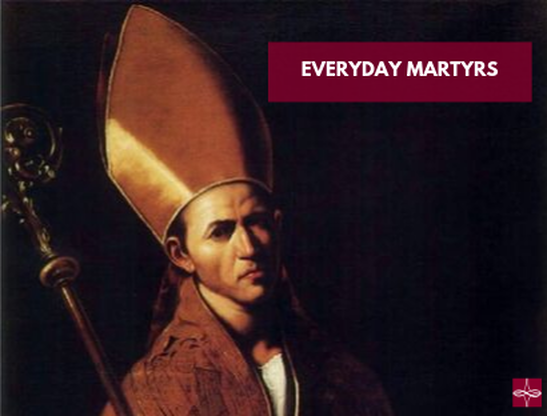

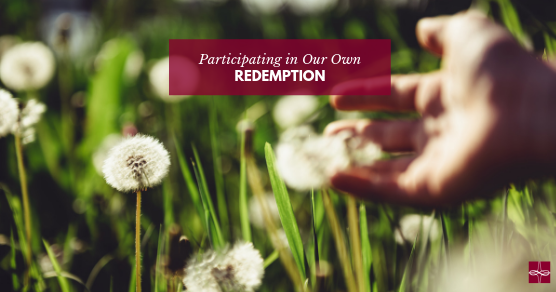





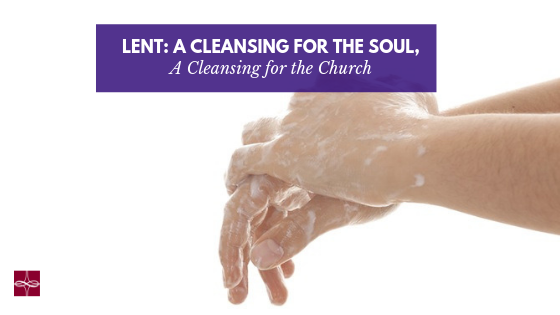

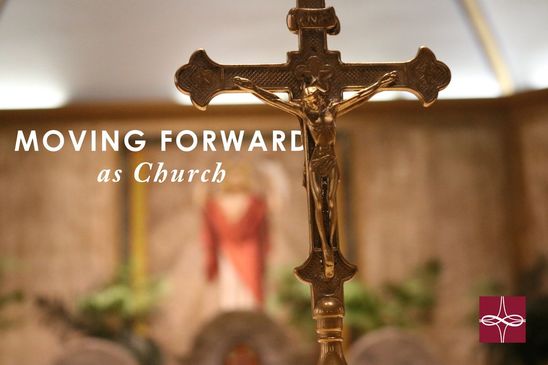

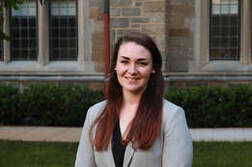
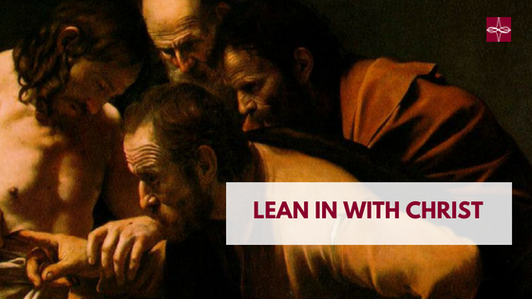

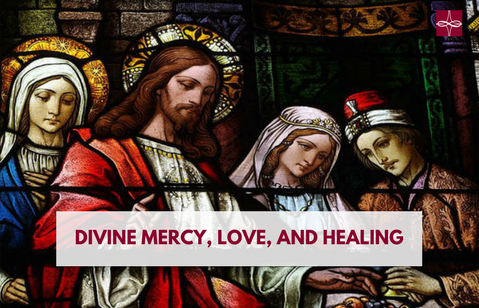





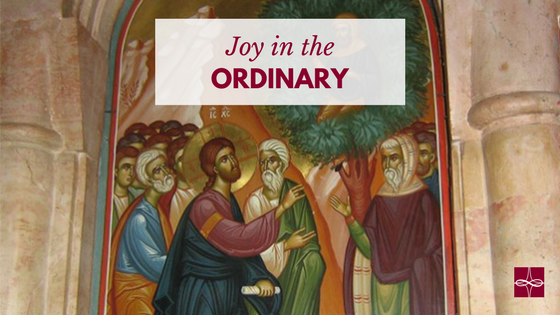



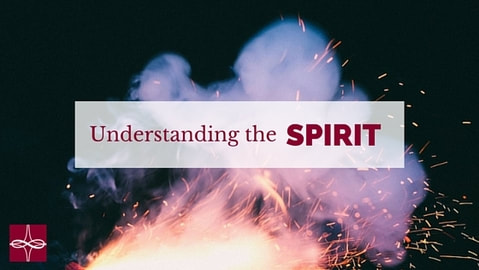


 RSS Feed
RSS Feed